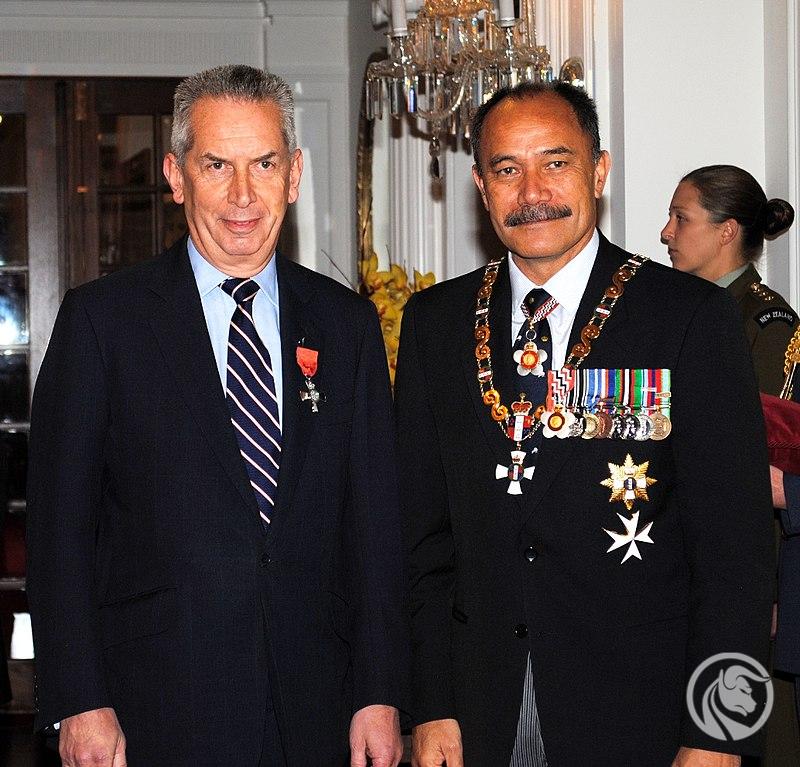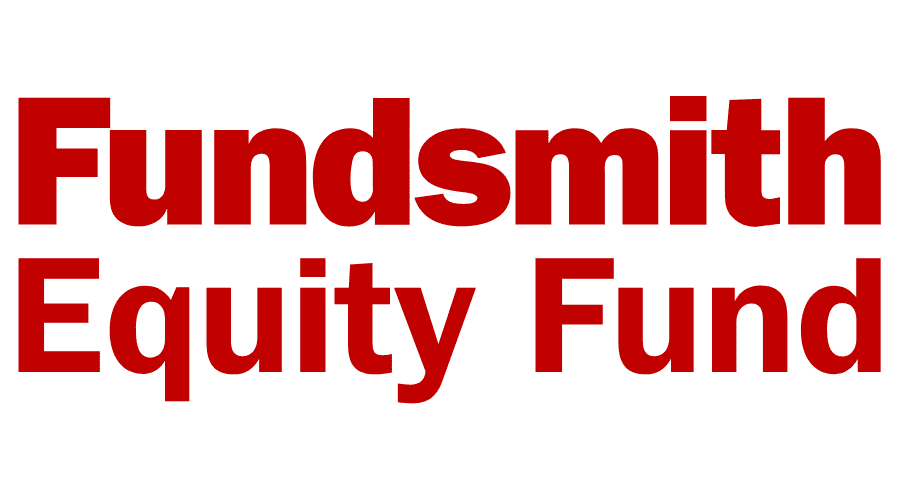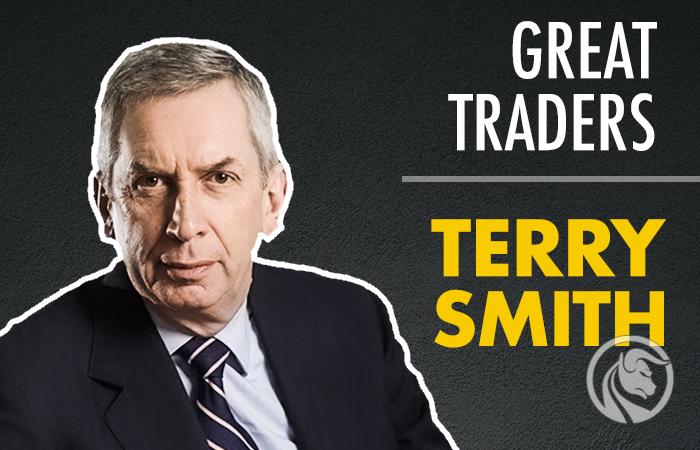Terry Smith - how does British Warren Buffett invest?
Investing in value can help generate above-average returns. Stories are an example Warren Buffett or Mohnish Pabrai. However, there are more such examples. Another story proving that focusing on the foundations of the company can bring you great profits is Terry Smith. This London investor has achieved an amazing rate of return on investment. From the moment the fund was established Fundsmith the average annual growth reached the level of 17,1%. At the same time MSCI World Index generated an average annual rate of return of 12,3%. Fundsmith currently has £ 26bn in assets under management. In today's article, we will introduce you to the history "British Warren Buffett"whose private property is estimated at over 300 million pounds.

Terry Smith (left) after receiving The New Zealand Order of Merit in 2012. Source: wikipedia.org
Terry Smith: Childhood
Terry did not grow up in a wealthy family. So he had a much worse start than, for example, Warren Buffett, who was the senator's son. The father of today's text hero worked as a truck driver. Mom worked as a factory worker and occasionally earned extra money as a cleaner. Terry was born in 1953 and grew up in East London called The Forest Gate. In the 60s, this part of London looked completely different to the present one. Terry's family did not have a toilet inside their home. So he lived in worse conditions than the average London citizen. Despite the family's poor financial situation, Terry did not neglect his education. He graduated from Standford Grammar School, then went on to study history at University College Cardiff.
The beginnings of a career
After completing his education, young Terry Smith began working in Barclays Bank. He worked there for 11 years, between 1973 and 1984. While at the bank, he was in charge of the Pall Mall. However, the real milestone in his career development was his transition to the finance department where he worked as an equity analyst. There he was recognized as one of the best employees of the department. In 1979, he earned an MBA from Henley Management College. After leaving Barclays, he joined Greenwell & Co as an Analyst. Another turning point in his career was his promotion to the head of the Analyzes department at UBS Philips & Drew in 1990. During a short two-year adventure at UBS, Terry gained the opinion of a great analyst who understands the nuances of accounting and business valuation.
In the early XNUMXs, the companies included in the index went bankrupt 100 FTSE. These were companies such as Polly Peck and British and Commonwealth. Terry's clients wondered why these companies collapsed despite being one of the largest companies listed on the London Stock Exchange. In response to questions from his clients, he agreed to compile his experiences in a book Accounting for Growth. In this position, Terry introduced readers to the techniques of manipulating financial statements that are used by companies that want to report rapid growth in revenues and profits. P.ublikacja was very badly received by institutional clients of UBSwhich put pressure on Terry's superiors. The superiors wanted to stop the sale of the book, but the author and publisher (Random House) refused to do so. As a result, UBS fired Terry and brought the case to court. The UBS book scandal was counterproductive. Ultimately, the book became a bestseller with more than 100 copies sold. A court case between UBS and Terry Smith ended in a settlement after 000 months.
Career after UBS
After his release from UBS, Terry Smith joined Collins Stewart. After four years, in 1996, he became a director of the company. In 2000, thanks to a management buyout, Terry became the CEO. Soon after, the company made its debut on the London Stock Exchange. In 2003-2004 Collins Stewart acquired competing companies: Tullett Liberty and Prebon. In the case of Tullett, the problem was the pension deficit that was burdening the acquired company. Smith convinced the current managers to lay off the investment portfolio managers. Terry Smith would personally handle the pension fund. According to him, the solution was to sell bonds and allocate the cash received to selected companies. This was to allow the company to generate additional profits that were to cover the deficit in the insurance fund.
Terry Smith was an advocate of investing capital in just 20 companies to take advantage of the portfolio concentration. While being CEO of Tullett Prebon (the company was formed from the merger of two acquired companies), Terry generated £ 2bn in value for his shareholders. In 2010, Terry Smith retired as CEO of Collins Stewart to focus on developing the idea with his own mutual fund.
Smith is one of Warren Buffett's longtime fans. "British Buffett" since 1979, he regularly reads Buffett's famous shareholder letters Berkshire Hathaway. Thanks to his reading, Terry was able to create his own investment strategy, which is also based on investing in value.
Fundsmith

Source: fundsmith.co.uk
In 2010, the fund was established Fundsmith, who was to invest capital on stock exchanges. This fund has one investment strategy that is used in both the flagship fund Fundsmith Equity Fundand much smaller Fundsmith Emerging Equities Trust.
One of the hallmarks is reluctance to change the portfolio composition. As a result, fund composition adjustments are extremely rare, lowering the cost of doing business. For example, in 2014, Fundsmith had £ 3,5bn in assets under management. That same year, he spent just £ 98 in stock trading commission. This gave commission costs to assets at 0,005%. By comparison, the average UK fund had a ratio of 1%. In 2020, Fundsmith incurred commission costs of 0,03% of the assets under management.
Fundsmith investment strategy
High profitability and capital management
Terry Smith's investment strategy is very similar to that of Warren Buffett. Fundsmith's analyst team is looking for companies that generate high capital growth, i.e. ROCE - Return on Equity Employed. Analysts are looking for companies with a high operating margin and gross margin on sales. In addition, the Fundsmith also includes companies that are financially more stable than the market average. For example, the interest coverage ratio is on average 2-3 times higher than the FTSE 100 index components and S & P 500.
Investing in winners
In 2015, Terry Smith in an interview with The Telegraph mentioned:
"We are not trying to find companies that will win, but which have already won."
This means that Fundsmith is not going to find "Another Amazon", prefers to have companies that have an advantage over the competition in their portfolio. This reduces the risk of an investment mistake. Fundsmith believes that many innovative solutions can change people's lives, but do not necessarily translate into shareholder profits. As an example, Terry Smith mentioned the beginnings of railroad, semiconductor and internet companies. Many of them changed the world, but did not translate into investment success. Terry Smith believes that they themselves do not have the skills to find the winners of the first wave of innovation. This is due to the awareness of one's own competences.
Right industries and none market timing
Fundsmith analysts are looking to find very good companies operating in industries where customers make daily, recurring transactions. The fund does not invest in companies operating in cyclical industries, needing large capital expenditures or needing strong financial leverage.
Another component of the fund's "investment secret" is the lack of the need for "market timing". Terry Smith, despite his vast experience in the market, believes that he cannot predict how the market will behave in the short term. Therefore, he prefers to always be on the market so as not to miss a session. As an example, Terry reported that the rate of return of the British index between 1980 and 2009 was 700%. However, if an investor "missed" the 20 days with the highest rate of return, it would drop to 240%.
Portfolio concentration and no financial engineering
The fund has 20 to 30 companies in its portfolio. Firstly, it results from the need to save analysts' time, but also from the strict requirements that must be met by companies operating in the "Investment radar". Terry Smith believes there are currently approximately 70 companies listed worldwide that comply with Fundsmith's investment criteria.
Additionally, Fundsmith only focuses on investing in the stock market. Terry Smith believes he won't be able to earn more from using financial engineering. For this reason, Fundsmith avoids investing in derivatives or short selling.
Low fees and a small team
Terry Smith is opposed to the fund charging for success as well "Hidden charges". In effect, Fundsmith only charges 1% management fee and does not charge fees for the success, deposit or withdrawal of funds.
Despite having large assets under management, Fundsmith has 16 employees and 4 partners. Such a small employment significantly simplifies the organizational structure, which makes it easier to make decisions.
Investing for the long term
The fund invests only for the long term. As a result, they do not have to worry about short-term market fluctuations. In the long term, the market appreciates companies that are able to create value for shareholders. For this reason, Fundsmith focuses on investing in companies that generate high returns on invested capital. For it the market is unpredictable in the short term and even the best quality companies can be valued below their intrinsic value. Fundsmith is not focused on beating the benchmark and the competition every year. Terry Smith compares running the investment fund to the Tour de France, where the winner of the entire tournament is usually a cyclist who does not win all races, but is regularly at the top of the tournament. Therefore, according to Terry Smith, the most important thing is to stay true to your assumptions and not to succumb to market trends.
Fundsmith Emerging Equities Trust
In addition to the flagship fund, Terry Smith also manages a fund dedicated to investing in midsize companies and those operating in the developing world. The fund is much smaller than the Fundsmith as it holds assets under management in the amount of "Only" 300 million pounds. Most companies operate in developing countries, where they are heavily represented India (45%). The largest components of the fund include the South American e-commerce platform, Mercadolibre or Nestle India. The fund comprises 45 to 55 companies. This represents about 20% of the "investment universe" operating in the mid-market or emerging market monitored by Fundsmith analysts.






















![Forex Club – Tax 9 – Settle tax on a foreign broker [Download the Application] Forex Club - Tax 9](https://forexclub.pl/wp-content/uploads/2024/02/Forex-Club-Podatek-9-184x120.jpg?v=1709046278)
![Trading View platform – solutions tailored to the needs of traders [Review] trading view review](https://forexclub.pl/wp-content/uploads/2024/03/trading-view-recenzja-184x120.jpg?v=1709558918)
![How to connect your FP Markets account to the Trading View platform [Guide] fp markets trading view](https://forexclub.pl/wp-content/uploads/2024/02/fp-markets-trading-view-184x120.jpg?v=1708677291)
![How to invest in ChatGPT and AI? Stocks and ETFs [Guide] how to invest in chatgpt and artificial intelligence](https://forexclub.pl/wp-content/uploads/2023/02/jak-inwestowac-w-chatgpt-i-sztuczna-inteligencje-184x120.jpg?v=1676364263)




![Izabela Górecka – “Success on the market depends not only on knowledge, but also on emotional stability” [Interview] Izabela Górecka - interview](https://forexclub.pl/wp-content/uploads/2024/04/Izabela-Gorecka-wywiad-184x120.jpg?v=1713870578)
![WeWork – the anatomy of the collapse of a company valued at $47 billion [WeWork, part II] wework bankruptcy story](https://forexclub.pl/wp-content/uploads/2024/04/wework-bankructwo-historia-184x120.jpg?v=1711729561)
![Adam Neumann – the man who screwed up Softbank [WeWork, part AND] adam neumann wework](https://forexclub.pl/wp-content/uploads/2024/04/adam-neumann-wework-184x120.jpg?v=1711728724)




![The most common mistakes of a beginner trader - Mr Yogi [VIDEO] Scalping - The most common mistakes of a beginner trader - VIDEO](https://forexclub.pl/wp-content/uploads/2024/03/Scalping-Najczestsze-bledy-poczatkujacego-tradera-VIDEO-184x120.jpg?v=1711601376)
![Learning patience: No position is also a position - Mr Yogi [VIDEO] Scalping - Learning patience - No position is also a position - VIDEO](https://forexclub.pl/wp-content/uploads/2024/03/Scalping-Nauka-cierpliwosci-Brak-pozycji-to-tez-pozycja-VIDEO-184x120.jpg?v=1710999249)
![When to exit a position and how to minimize losses - Mr Yogi [VIDEO] Scalping - When to exit a position and how to minimize losses - VIDEO](https://forexclub.pl/wp-content/uploads/2024/03/Scalping-Kiedy-wyjsc-z-pozycji-i-jak-minimalizowac-straty-VIDEO-184x120.jpg?v=1710336731)



















Leave a Response